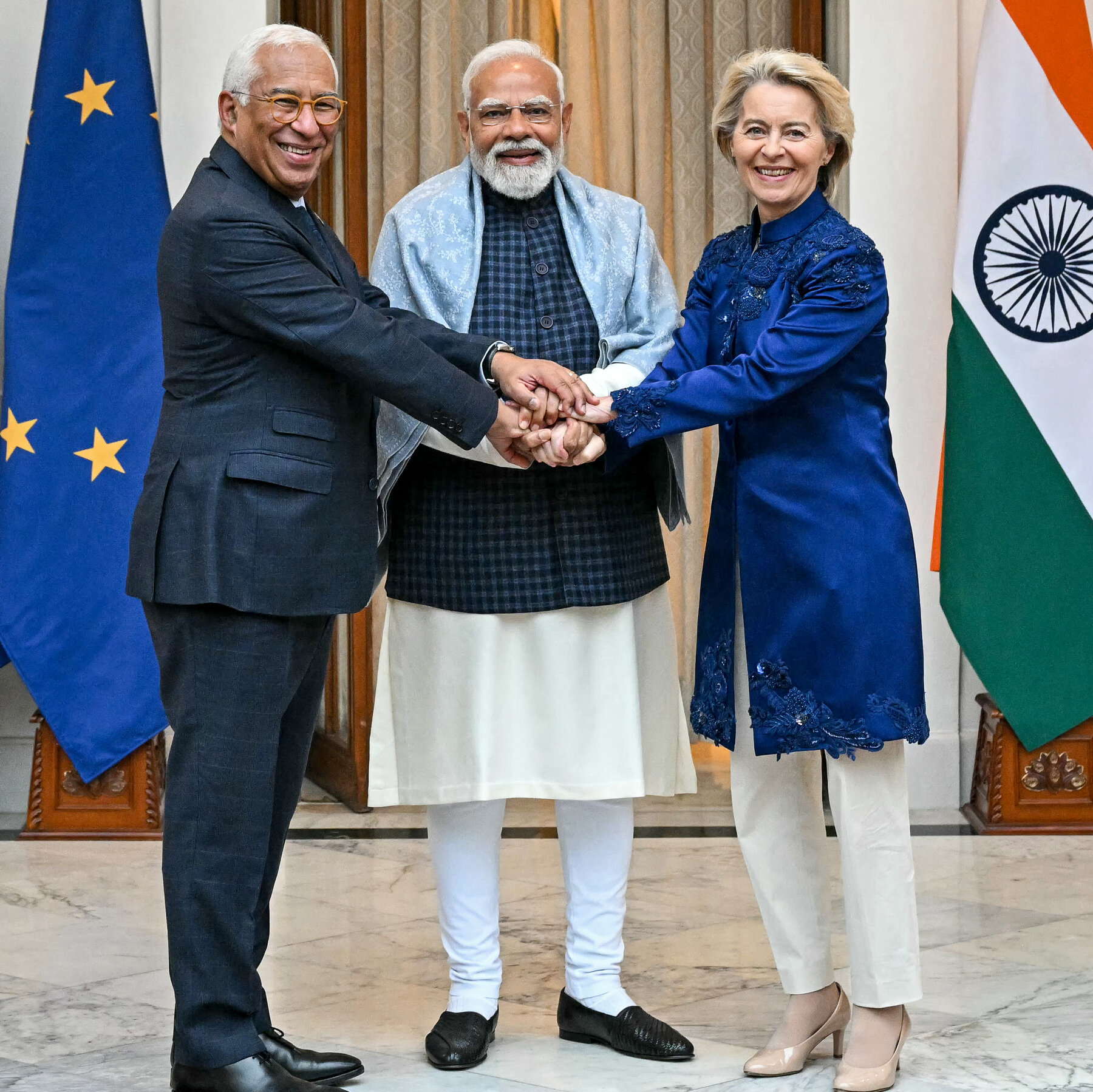
In a letter last week nominating President Trump for a Nobel Peace Prize, Prime Minister Benjamin Netanyahu of Israel heaped praise on the diplomatic deals known as the Abraham Accords, establishing diplomatic relations between his country and three Arab states.
In his letter to the Norwegian Nobel Committee, Mr. Netanyahu called the 2020 accords, brokered by Mr. Trump, “breakthroughs” that had “reshaped the Middle East,” making a “historic advance toward peace, security and regional stability.”
The Middle East did not appear to be aware of any such advance.
Even as Mr. Netanyahu met in Washington last week with Mr. Trump and other American officials, the Israeli military continued its devastating bombing of the Gaza Strip, the Houthis in Yemen attacked two cargo ships in the Red Sea and a brutal civil war continued to rage in Sudan. Weeks earlier, Israel and the United States were bombing Iran, which was firing missiles in return. And Israeli forces remain on the ground in both Lebanon and Syria, in the aftermath of wars that ended just months ago.
During the nearly five years since the Abraham Accords were signed, Mr. Trump, Mr. Netanyahu and other American and Israeli officials have repeatedly referred to the agreements with the United Arab Emirates, Morocco and Bahrain as a “peace deal.”
Scholars who study the region say that is merely a turn of phrase, belying the fact that there has never been a war — or any violence at all — between Israel and the U.A.E. or Bahrain. Morocco has also largely stayed out of the Arab-Israeli conflicts, aside from sending a token force to the 1973 war, more than 50 years ago.

“It’s got nothing to do with peace,” Hussein Ibish, a senior resident scholar at the Arab Gulf States Institute in Washington, a research organization, said of the accords. “Peace was the way it was branded, and marketed. But that doesn’t mean that it makes any sense. This was not an agreement that ends the war.”
In effect, the deals bypassed the central conflict, between Israel and the Palestinians, declaring harmony between parties that were not fighting.
Since then, the very phrase “regional peace” has become an opaque and disputed term in the Middle East, said Abdulaziz Alghashian, a Saudi researcher and senior nonresident fellow at the Gulf International Forum.
“Who is involved in this ‘regional peace’?” he said he had found himself asking supporters of the Abraham Accords. He said he realized that for some, it is a concept that relies on “a complete avoidance of the Palestinian issue.”
In a statement to The Times, the White House defended the legacy of the accords and said that the wars in the region had nothing to do with their efficacy.
“No amount of revisionist history or gaslighting from liberal activists and Democrat donors can undo President Trump’s historic and transformative Abraham Accords which brought peace to the Middle East,” the White House said. “Only President Trump could have secured these peace deals, and he deserves a Nobel Peace Prize for all the work he has done to end wars and conflicts that no other world leader has been able to do.”
American officials and lawmakers from both parties have presented the Abraham Accords as a game changer with the potential to transform the Middle East. The accords did allow for Israeli tourists and investors to pour into Dubai, the biggest city in the U.A.E., and technology and energy companies signed new deals.
Israel and some of the Gulf countries had already engaged in quiet trade and security cooperation, under the table. The accords brought that into the open and allowed it to expand.
But that was not how the deals’ signatories had presented them.

“The blessings of the peace we make today will be enormous,” Mr. Netanyahu declared from a White House balcony when the accords were announced. “Ultimately it can end the Arab-Israeli conflict once and for all.”
Mr. Trump said at the same ceremony that the accords marked “the dawn of a new Middle East,” speaking of a future in which “people of all faiths and backgrounds live together in peace and prosperity.”
After the news cameras were turned off, peace and prosperity did not, of course, sweep through the Middle East.
Israel’s occupation of the West Bank has deepened, rather than eased, as Emirati officials had hoped when they signed the deal, and members of Mr. Netanyahu’s government want a long-term occupation of Gaza. The prospects for a Palestinian state in the West Bank and Gaza, with Jerusalem as its capital, a goal of Arab leaders, appear dimmer than ever.
The Abraham Accords were premised on the notion of Arab-Israeli cooperation while skipping past the Palestinians, but “that was always a mistake, and it wasn’t such a shock when Gaza proved it was a mistake,” said Marc Lynch, a political science and international affairs professor at George Washington University. “Maybe it shocked some people — but it shouldn’t have.”
On Oct. 7, 2023, Hamas, the Palestinian militia that ruled Gaza and received backing from Iran, led a fierce attack in Israel that killed more than 1,000 people. In response, Israel began a sweeping bombardment of Gaza, followed by a ground invasion. Two million Palestinians there are facing desperate hunger, more than 50,000 have been killed and most of the enclave lies in ruins.

The powerful Lebanese militia Hezbollah and the Houthis, both closely allied with and armed by Iran, attacked Israel in solidarity with the Palestinians. Israel struck back harder, invading Lebanon last year. Last month, Israel waged a brief war directly with Iran.
The Houthis, who control a large part of Yemen, have wreaked havoc on Red Sea shipping in what they describe as a campaign against Israel and have vowed to keep at it. Last week they sank a cargo ship, killing at least two crew members and taking others hostage.
Saudi and other Arab officials have long been saying that the Palestinian issue was “explosive, and the region cannot move on without solving it,” Mr. Alghashian said. Before Oct. 7, this was a “theoretical concern,” he said. Now, it is visceral.
Lebanon and Egypt are suffering dire economic crises. And in 2023, an entirely new war erupted in Sudan, setting off one of the world’s worst famines in decades.
The only potentially bright piece of conflict-related news in the Middle East recently is in Syria, where a civil war finally ended with rebels toppling the Syrian dictator Bashar al-Assad. But their victory had nothing to do with the Abraham Accords and it remains unclear whether they will deliver either lasting peace and stability within the country, or peace with Israel.
American and Israeli officials have frequently stated their desires and expectations for other countries, most importantly Saudi Arabia, to sign the accords. So far, that has fallen flat. Sudan, often cited as a candidate to be the next Arab country to join, has not established diplomatic relations with Israel.

Years of overtures to persuade Saudi Arabia to join the accords have so far failed. The Biden administration took up that mantle fervently, pursuing a deal built on the United States granting major benefits to the kingdom. It never came to fruition, and analysts say the war in Gaza has made it much less likely.
“Inside the Gulf, there’s no way it’s going to expand,” at least under the same framework as the Abraham Accords, Mr. Alghashian said. Especially in Saudi Arabia, that idea is “tainted” now, he said.
Still, that has not stopped officials in Washington from recently turning their conversations about Middle East policy back to the Abraham Accords.
“I won’t get a Nobel Peace Prize for doing the Abraham Accords in the Middle East,” Mr. Trump complained on social media last month, arguing that his efforts to forge peace have been underrecognized. But, he said, “if all goes well,” new countries would sign on, asserting that the development would “unify the Middle East for the first time in ‘The Ages!’”









-3.png)



